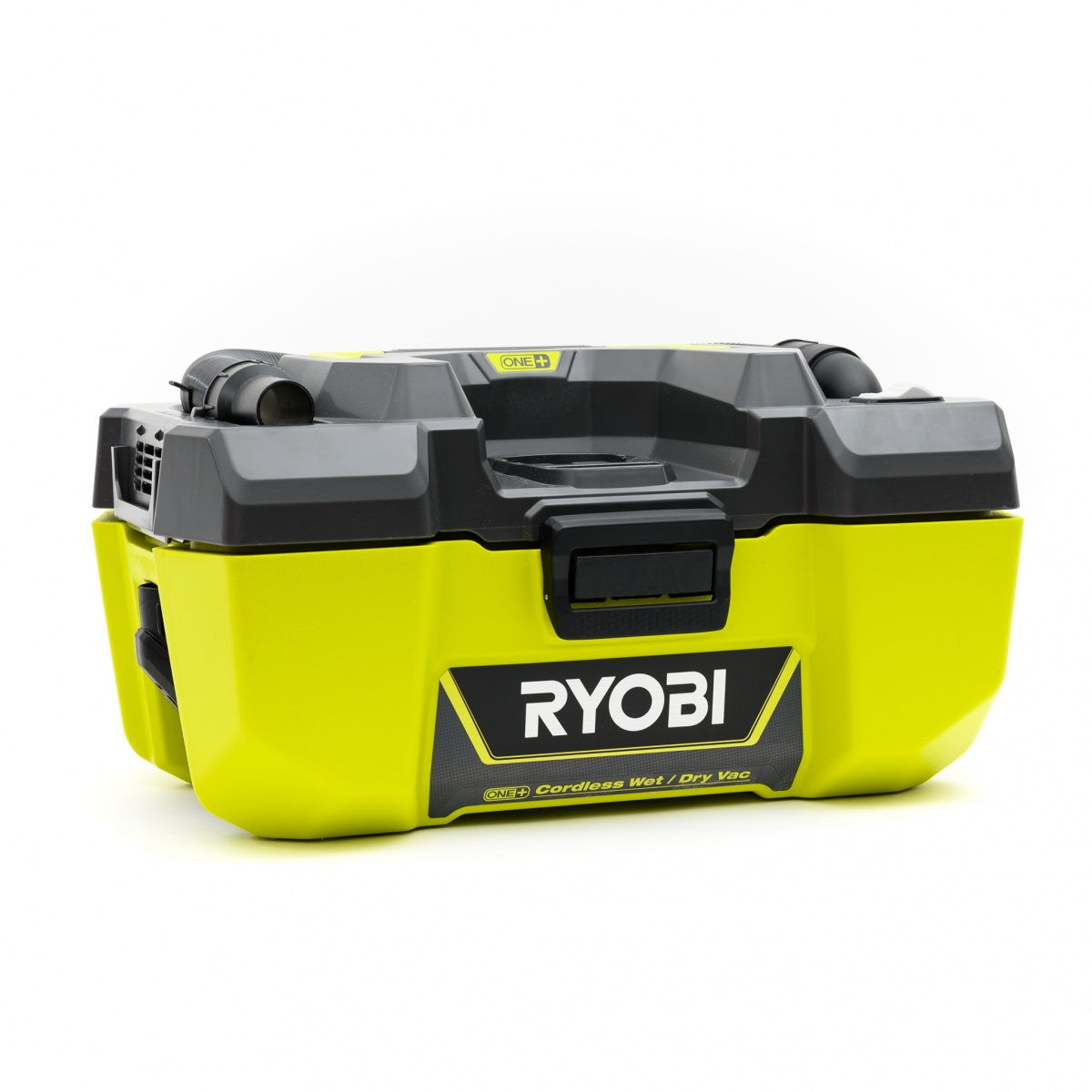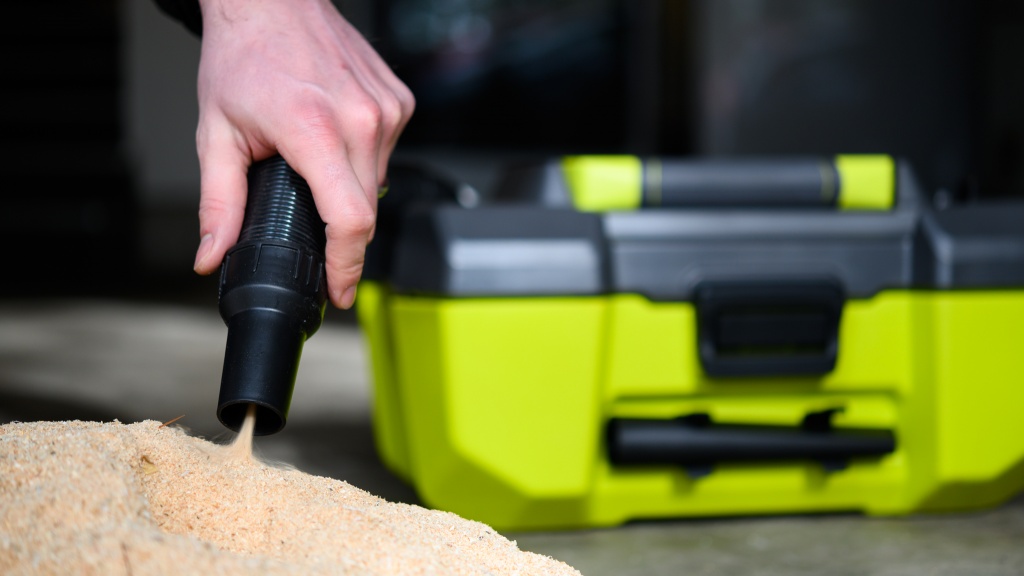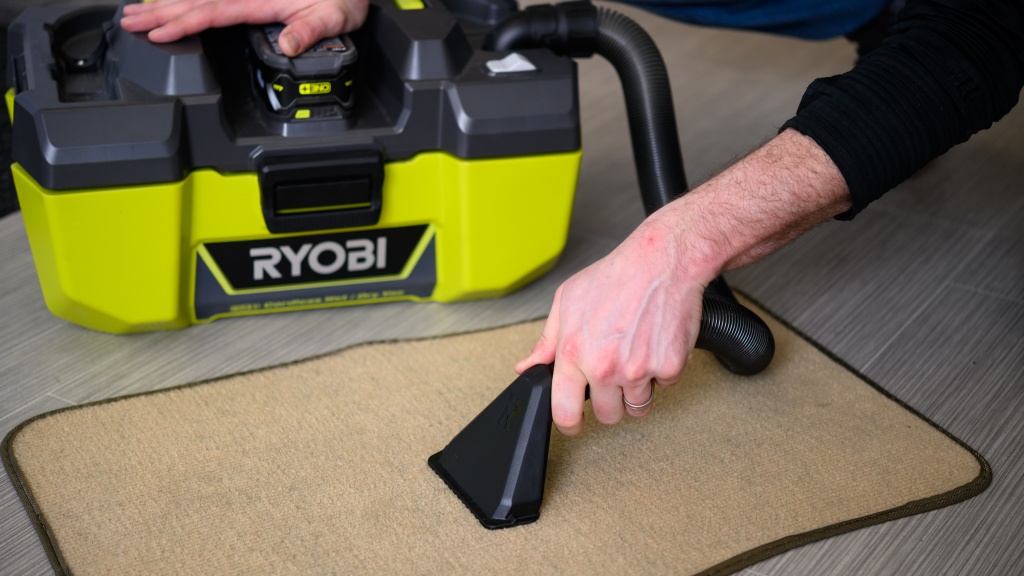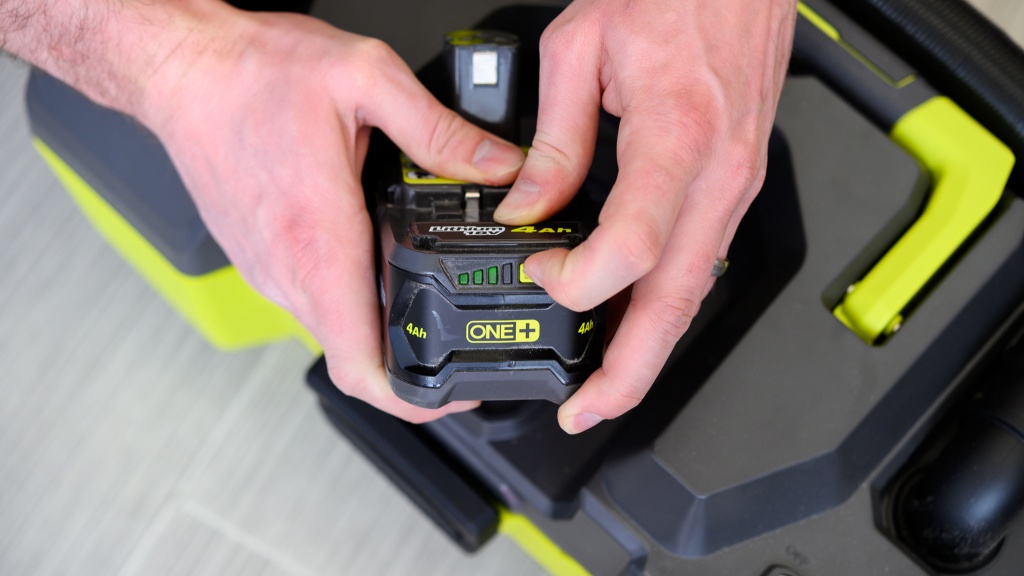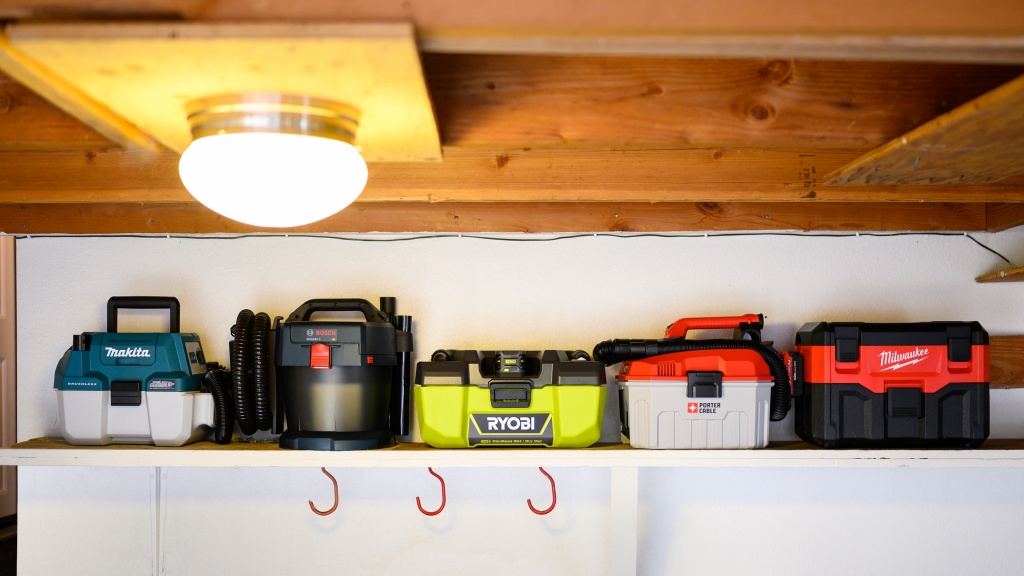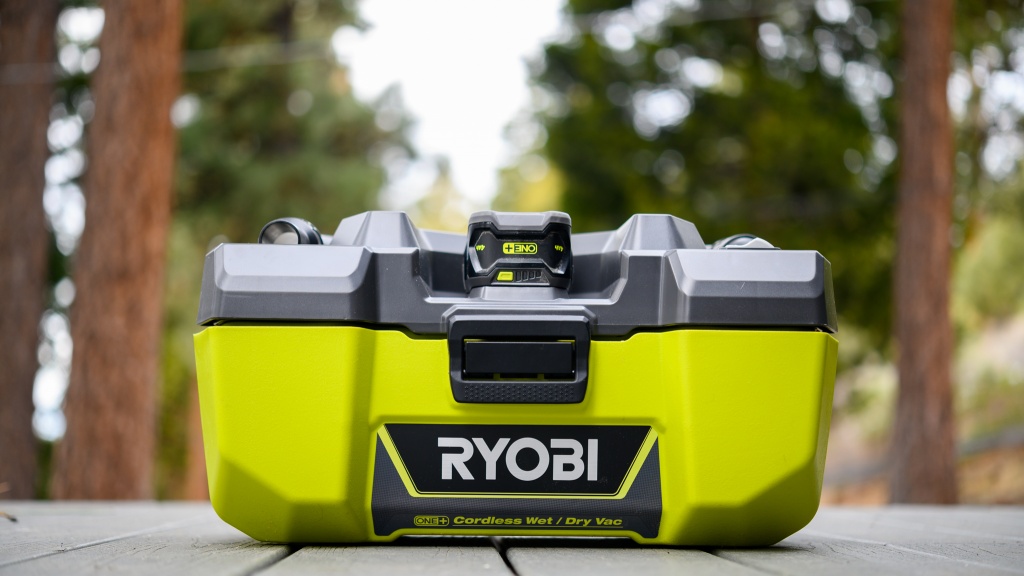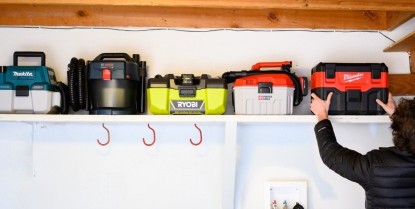Ryobi P3240 Review
Our Verdict
Compare to Similar Products
 This Product Ryobi P3240 | |||||
|---|---|---|---|---|---|
| Awards | A Great Value | Best All-Around Cordless Shop Vac | Best Toolbox-Style Shop Vac | Best Bang for the Buck Shop Vac | Best Cordless Shop Vac for Dust Collection |
| Price | $119 List | $99 List $99.00 at Amazon | $150 List $141.00 at Amazon | $100 List | $109 List |
Overall Score  |
|||||
| Star Rating | |||||
| Bottom Line | An affordable vacuum that is tough on wet and dry messes | This machine performed well across the board but particularly in wet clean-up and runtime | A compact, powerful tool that can handle just about anything | This competitively priced vacuum is powerful and efficient but lacks in battery life | For capturing loose debris, this machine is a boss |
| Rating Categories | Ryobi P3240 | Craftsman CMCV002B | Milwaukee M18 0880-20 | Kobalt KWDV 0124B-03 | Ridgid WD0319 |
| Dry Work (40%) | |||||
| Wet Work (30%) | |||||
| Battery Life (20%) | |||||
| Convenience (10%) | |||||
| Specifications | Ryobi P3240 | Craftsman CMCV002B | Milwaukee M18 0880-20 | Kobalt KWDV 0124B-03 | Ridgid WD0319 |
| Measured height x width x depth (inches) | 9 1/2" x 18 1/2" x 12" | 13" x 18 3/4" x 10 1/2" | 12" x 16 3/4" x 8 1/2" | 13" x 17 1/2" x 10 3/4" | 15 1/2" x 20 1/2" x 15 1/2" |
| Measured weight (w/o battery) | 8 pounds, 6 ounces | 7 pounds, 8 ounces | 10 pounds, 2 ounces | 10 pounds,12 ounces | 8 pounds, 3 ounces |
| Measured runtime (minutes) | 19 min | 34 min | 23 min | 20 min | 15 min |
| Measured hose length min/ max (inches) | 20 1/4" - 84" | 26" - 94" | 24" - 90 1/2" | 24" - 96" | 27" - 92" |
| Attachments | utility nozzle, crevice tool | crevice nozzle, wide nozzle | crevice nozzle, floor nozzle | crevice nozzle, floor nozzle | dusting brush, multi-purpose tool |
| End of hose diameter (inches) | 1" | 1" | 1" | 1 1/16" | 1 1/2" |
| HEPA rated filter | Yes | Yes | Yes | Yes | No |
| Canister volume (gallons) | 3 gal | 2 gal | 2 gal | 3 gal | 3 gal |
| Washable filter | Yes | Yes | Yes (dry only) | Yes | No |
| Battery (volts) | 18v | 20v | 18v | 24v | 18v |
| Measured suction (inches of water lift) | 22" | 19" | 25" | 22" | 29" |
| Battery life indicator on machine | On select batteries | On select batteries | On select batteries | On select batteries | On select batteries |
| Blower feature | Yes | Yes | Yes | Yes | Yes |
| Tool connection adaptor | No | No | Yes (sold seperately) | No | No |
| Auxiiary power cord | No | No | No | No | No |
| Dry sawdust clean-up (seconds) | 15 sec | 15 sec | 13 sec | 13 sec | 8 sec |
| Wet sawdust clean-up (seconds) | 42 sec | 42 sec | 36 sec | 51 sec | 15 sec |
Our Analysis and Test Results
Two things set the Ryobi P3240 apart from the other models in the class of cordless wet/dry vacs. One, it delivers on the implied promise that it will efficiently and effectively clean both wet and dry messes. Two, it's competitively priced. While the vacuum is compact, we prefer models that offer internal storage for their attachments and hose as they are more streamlined and easier to manage. More disappointing, though, is the machine's lack of a long-lasting battery and a HEPA filter. That said, while it's running, there isn't much that this machine can't suck up in a hurry.
Dry Work
Generally speaking, the primary use of a shop vacuum is to clean up dry materials. As such, it's good that the Ryobi is so proficient at this kind of work. When put to task, this machine showed no signs of weakness, sucking up heavy items ranging from wood screws to machine nuts, washers, and bolts. Heck, it even moved a 100-gram calibration weight up the hose like a bullet through a rifle barrel, depositing it in the canister with an audible thunk!
While this machine didn't set any records in the sawdust clean-up test, it did keep with the class average by sucking up 9 cups of the stuff in 15 seconds. Additionally, the P3240 achieved average results in our crevice test. Its crevice tool has a good reach at 8 ¼ inches, and the additional ¾ inch of suction reach isn't too bad either.
Wet Work
While some folks don't think about all the wet messes a vac can tackle, we've found that a well-designed wet/dry vac will beat the mop in many scenarios. The Ryobi is a wizard with wet work. It will suck 2 gallons of standing water in 9 seconds, a rate that sets the bar for the class.
As not all wet messes are purely liquid, but rather a combo of liquids and whatever they happened to land on, we tested this machine's mettle on 9 cups of wet sawdust as well. The Ryobi will swallow this soggy pile in 42 seconds. The tube didn't clog in the process, and the demanding work didn't appear to strain the motor.
Spills in cars are frequent and challenging to clean as well. So, we tested the vacuum for this, too. We poured 2 cups of water onto an auto floorboard mat and let it settle into the carpet fibers. We then sucked as much water out as possible and measured the water accumulated in the canister when we finished. The P3420 retrieved almost all of the 2 cups though the process muddied them. Finally, we measured the machine's suction with a water lift gauge. It registered at 22 inches of water lift — just below average for the group.
Battery
Batteries are critical components of cordless tools, and wet/dry vacs are no exception. While this power source is essential, the quality is easy to test. Having been run through our test, we can confidently say that the Ryobi's battery could use some serious improvement.
We know that the battery is a weak point in the P3420's otherwise stellar performance because we measured the amount of time it took for a fully charged cell to run itself down while the vac was pulling air. We call this interval the runtime. This model's runtime is 19 mins. As not all the models here reviewed have the same battery, we divide the runtime by the amp-hour battery rating to make direct comparisons. The Ryobi runtime per amp-hour is 4 minutes, 45 seconds, almost a full minute below the group average of 5 minutes and 30 seconds.
Convenience
This metric assesses features that make the vacuum more enjoyable to use. We measure the space required to store the machine, the reach of the hose, and the hose's resistance to collapsing when stepped on. We also take the machine's weight and check to see its filter meets HEPA standards. Finally, we measure the noise produced by the device. Overall, the Ryobi comes in about average in this assessment.
The P3420 is a relatively compact machine that makes it easy to store on a shelf or in a closet. Unfortunately, its hose is on the stubby end of the class, but it isn't prone to collapsing when weighted. At 8 lbs, 6 ounces, it has a below-average weight. Much to our dismay, this machine lacks a HEPA filter, and one doesn't appear to be available for aftermarket purchase. Finally, the slightly whiny motor registers at 79 dBa, which is also average for the review group.
Should You Buy the Ryobi P3420?
The Ryobi is a good choice if you need a precision strike product. Its small size and lighter weight make it easy to store, and it has a powerful motor that will suck up big messes in a flash — which is good because the battery can be somewhat short-lived. It is on the lower end of the price range for this group, and we like that a more affordable product can provide such good results.
What Other Cordless Wet Dry Vacuums Should You Consider?
Our other favorite budget option is the Kobalt KWDV 0124B-03. It has a similar price and a higher score for dry work and a lower score for wet work. Ultimately, the types of messes you encounter most frequently will dictate which machine is suitable for you.


